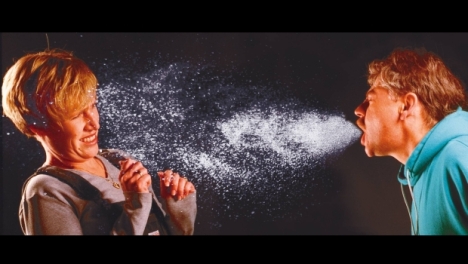All About “STERNUTATION”
Courtesy: www.CertifiedMedicalPlanner.org
A Silly Question Until Covid-19!
A “Sternutation” is a sudden involuntary expulsion of air from the lungs through the nose and mouth due to irritation of the nasal passage.
A sneeze is not always related to an underlying medical condition. It may be caused by:
- Nasal irritants (dust, pepper, pollen etc)
- Sudden exposure to bright light
- Breathing cold air
- Object struck in nose.
Self-treatment helpful in some less- serious cases include:
- Change the furnace or air conditioner filters
- Do not have pets in the house if allergic to animal dander
- Wash linens in very hot water (at least 130 degrees Fahrenheit) to kill dust mites
- Vacuum and dust frequently
- Use a good humidifier especially at night, if the air is too dry
- Drink plenty of water if suffering from flu/common cold.
See a doctor if you notice the following :
- Fever greater than 101.3 F (38.5 C)
- Fever lasting five days or more or returning after a fever- free period
- Shortness of breath
- Wheezing
- Severe sore throat, headache or sinus pain
- Allergy does not resolves in a few days.
See a doctor immediately if you notice:
- Sneezing is continuous
- Causes severe ear pain, drowsiness.
***
***
Assessment: Your thoughts and comments are appreciated.
***
BUSINESS, FINANCE AND INSURANCE TEXTS FOR DOCTORS
THANK YOU
***
Filed under: Glossary Terms, LifeStyle, Quality Initiatives, Research & Development, Videos | Tagged: corona virus, Corvid-19, pandemic, sneeze, sneezing, Sternutation | 2 Comments »






















